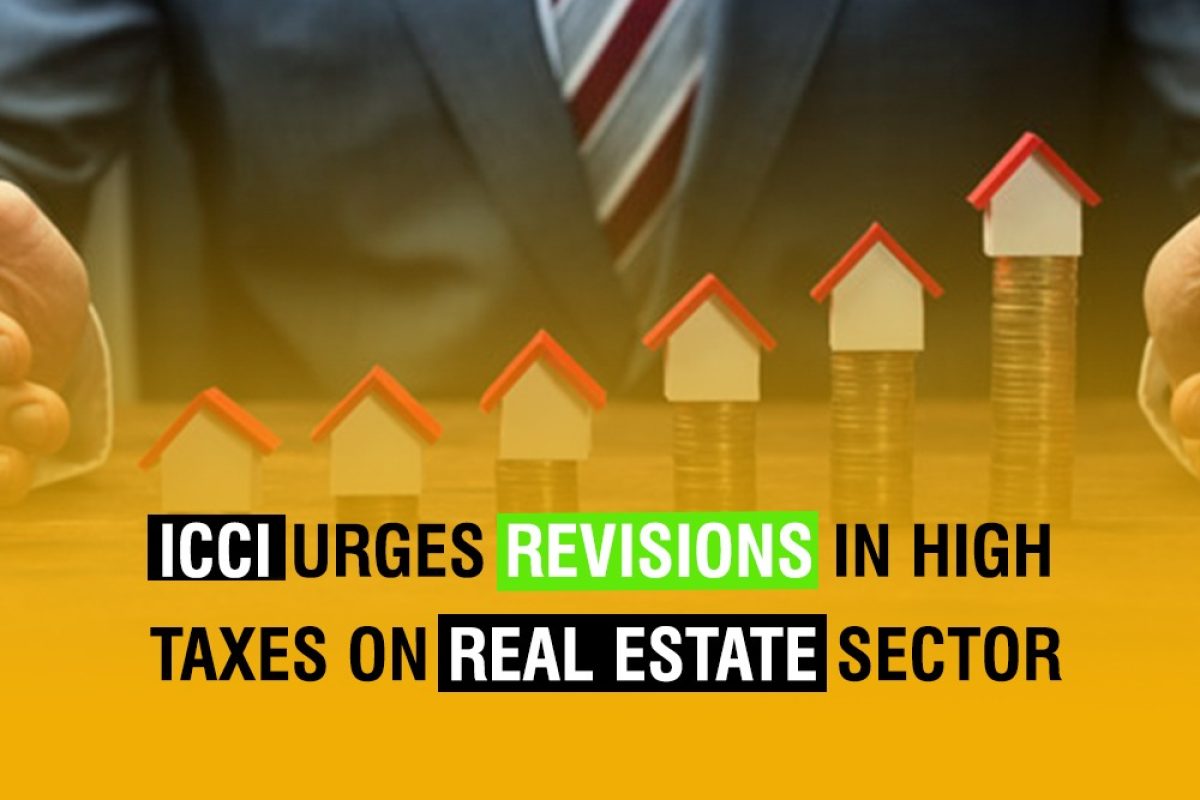The real estate sector in Pakistan plays a pivotal role in the country’s economy, contributing significantly to employment, infrastructure development, and investment. However, the sector has recently faced challenges due to high taxes imposed by the government. Recognizing the urgency of addressing these issues, the Islamabad Chamber of Commerce and Industry (ICCI) has called for a revision of the high taxes affecting the real estate sector.
Also Read:
PAKISTAN’S REAL ESTATE SECTOR NEEDS TAX RELIEF TO BOOST INVESTMENTS: ICCI CHIEF
The Call for Consultation
Ahsan Zafar Bakhtawari, President of the ICCI, has emphasized the importance of engaging realtors in consultations to rationalize these high taxes. Speaking at a seminar on the tax issues of the real estate sector, Bakhtawari stressed the need for attractive incentives to encourage investment in construction and real estate. The seminar, jointly organized by ICCI, the Islamabad Estate Agents Association (IEAA), and the Federation of Realtors Pakistan (FORP), highlighted the pressing tax challenges faced by the sector.
Major Tax Issues Highlighted
During the seminar, Sardar Tahir Mehmood, President of the Islamabad Estate Agents Association and President of the Federation of Pakistan Realtors, outlined the major tax issues plaguing the real estate sector. One of the critical points raised was the 1% tax on deemed income of immovable assets under Section 7E. Mehmood called for the immediate withdrawal of this tax to protect real estate businesses from potential collapse.
Impact of Withholding Tax Rates
Another significant issue discussed was the raised withholding tax (WHT) rates on filer and non-filer buyers and sellers. Mehmood warned that such measures could lead to tax evasion rather than increasing tax revenue. The heightened WHT rates are seen as coercive and detrimental to the sector’s growth, potentially driving investors away and stifling economic activity.
Also Read:
PAKISTAN’S REAL ESTATE INDUSTRY IS OFFICIALLY DEAD- WHAT HAPPENS NEXT?
Concerns from Industry Leaders
Prominent figures from the real estate sector also voiced their concerns during the seminar. They called upon the government to withdraw the high taxes imposed on the real estate sector to safeguard the economy from further troubles. The consensus among industry leaders is that the current tax regime is not conducive to growth and prosperity and that immediate reforms are necessary to revive investor confidence.
The Need for Attractive Incentives
The real estate sector requires attractive incentives to thrive. By offering tax breaks and reducing the burden on real estate transactions, the government can stimulate investment and promote economic growth. Such incentives could include:
- Reduction in Withholding Tax Rates: Lowering WHT rates for both filers and non-filers can encourage more people to participate in real estate transactions without the fear of excessive taxation.
- Withdrawal of Deemed Income Tax: Eliminating the 1% tax on deemed income of immovable assets can provide immediate relief to real estate businesses and prevent potential collapse.
- Introduction of Tax Reliefs: Offering tax reliefs for new construction projects and first-time buyers can spur development and make property ownership more accessible.
Also Read:
CAPITAL SMART CITY HAS FULFILLED THE M2 MOTORWAY INTERCHANGE PROMISE
Potential Benefits of Tax Reforms
Implementing these tax reforms can have several positive effects on the real estate sector and the broader economy:
Increased Investment
Lower taxes and attractive incentives can draw more local and international investors into the real estate market. This influx of investment can lead to the development of new residential, commercial, and industrial projects, driving economic growth.
Job Creation
A thriving real estate sector can generate numerous employment opportunities in construction, real estate management, and ancillary services. This job creation can contribute to reducing unemployment rates and boosting household incomes.
Enhanced Economic Activity
Real estate development stimulates various other sectors, including construction, manufacturing, and services. As new projects come to fruition, demand for materials, labor, and professional services increases, leading to a ripple effect of economic activity.
Improved Housing Availability
By promoting investment in new housing projects, tax reforms can help address the housing shortage in Pakistan. Increased availability of affordable housing can improve living standards and contribute to social stability.
Makani Marketing’s Perspective
As a leading real estate agency, Makani Marketing understands the critical impact that tax policies have on the sector. We believe that the government’s role is pivotal in creating a conducive environment for real estate growth. By revising high taxes and introducing supportive measures, the government can unlock the sector’s potential and contribute to national economic development.
Also Read:
WHY IS REAL ESTATE A GOOD INVESTMENT DURING INFLATIONS?
Conclusion
The ICCI’s call for revisions in the high taxes on the real estate sector highlights the urgent need for reform. Engaging realtors in consultations, addressing key tax issues, and introducing attractive incentives are essential steps towards revitalizing the sector. By implementing these changes, the government can encourage investment, stimulate economic activity, and create a more vibrant and resilient real estate market in Pakistan.
Makani Marketing supports these initiatives and is committed to assisting investors and stakeholders in navigating the evolving real estate landscape. We urge the government to take immediate action and create a favorable environment for real estate growth and prosperity.
#ICCI high taxes on real estate sector #ICCI high taxes on real estate sector #ICCI high taxes on real estate sector















